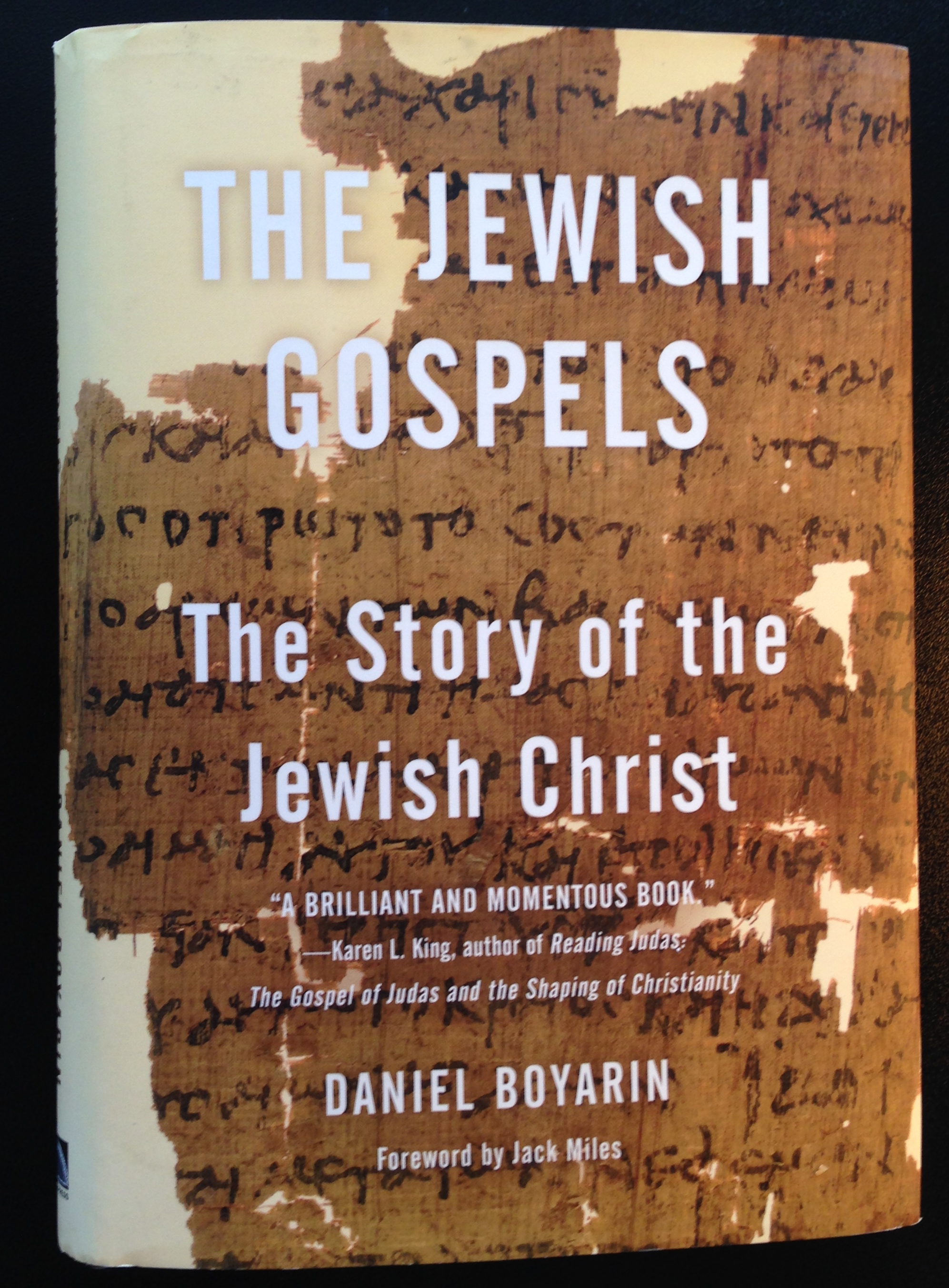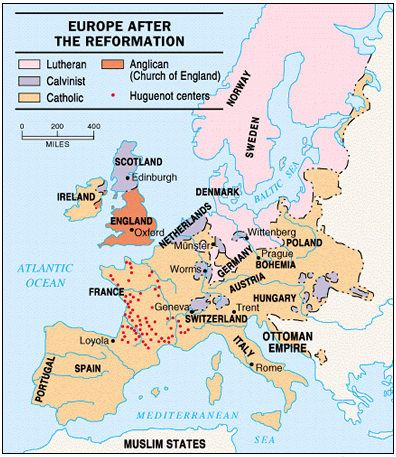Hello, Hedrick!
As I’ve said before, I actually do think Calvin (and the Reformation as a whole) is a precursor to the Enlightenment. But there are plenty of other sources for the Enlightenment, including the broader humanist movement, and the new science. The Renaissance as a whole wanted to go back to its roots, and was willing to reconsider traditions in a wide range of areas.
Yes.
Additionally, Calvinism was a stronger precursor to the Enlightenment than Lutheranism, because Luther and the Reformed directly debated over the role of "Reason" in defining Christ's body in general and the Eucharist in particular, a debate so strong that Luther rejected fellowship with Reformed in the Formula of Concord.
Per Luther, Calvin was using Reason to judge against what the rest of Christianity considered Biblical Christian doctrine. And in the Enlightenment, Reason was again used as a main tool to judge against common religious teachings, thus making Calvinism a much more direct precursor.
That’s why Reformed Christians aren’t the only participants in post-Enlightenment theology. Similar approaches to Scripture are shared by all mainline Christians, and (with some limitations) Catholics. That makes it a bit weird for a traditionalist to focus quite so much on Reformed theology.
It is not weird to focus on Reformed, because the Reformed approach was much clearer, foundational and basic in this approach to religion, as Luther said. Besides, you felt yourself that Calvinism was a major precursor.
The list of things Rakovsky disagrees with near the end of posting 365 includes
* understanding the OT in an OT context - pretty much all modern scholars
I was discussing Isaiah 53 in particular, not just "understanding the OT in an OT context".
I will be glad to discuss with you outside this thread, if you believe that those Study Bibles are correct. Rabbi Daniel Boyarin is a modern, orthodox rabbinical Talmudic scholar and came to the opposite conclusion from the modern Protestant study Bibles, and concluded that Isaiah 53 is about Messiah.
I have researched Isaiah 53 in depth, going in with the guess that the rabbis and modern Protestant Study Bibles were right about this.
Since as a plain matter of literary analysis they go against the actual OT understanding and do so in opposition to the traditional Christian understanding for the last 1970 years or so, I disagree with their decision.
* a claim that the Apostles were on drugs (PCUSA) [it would be nice to have heard the original form of this comment; I wonder how close it was to this kind of vague rumor]
Sorry, I know this is hearsay, but I believe my relative. I am not going to give more info out on the chaplain because I expect it will be taken with hostility.
* Marcus Borg (Episcopal)
Borg was recommended to me by main church elder at a town's main PCUSA church. Also I am not going to give out personal info for same reason as above.
I note also:
Kansas church to feature Jesus Seminar speaker
The Layman Online, January 31, 2003
Marcus Borg, a Jesus Seminar fellow who claims that Christ did not say more than 80 percent of what the Bible records him as saying, is scheduled to speak at one of the largest churches in the Presbyterian Church (USA)... Village Presbyterian is a 6,000-member congregation ... [Its Rev.] Bohl, who was moderator of the PCUSA in 1994-95....
http://www.layman.org/news7605
Of course, I think it is interesting and nice to consider different views, including Jesus Seminar's.
* a weird anti-supernatural comment by Vincent Taylor (Methodist)
* A. R. Eckardt - Methodist, if I’ve got the right guy
* Quakers
* Unitarians, which he asserts came from Reformed.
Methodists, Quakers, Unitarians all came out the Reformed movement.
Methodists until the 20th century were considered Reformed as Arminianism came from Calvininist Dutch society. Quakers emerged in Puritan England and followed beliefs that using relics is a mistake because they are nonmiraculous and "carnal" and that sacraments were outward signs to their logical conclusion- that we shouldn't use sacraments because we don't want to use "carnal"-like, nonmiraculous outward signs. In practice, marriage is the only sacrament that they ritually observe.
Unitarians arose in the mid 16th century directly out of the Reformed Church in Poland:
https://en.wikipedia.org/wiki/History_of_Unitarianism
* Critical scholarship, which is ecumenical
I find it difficult to assert that the kind of modern critical scholarship I have in mind is "ecumenical". I am not aware of Eastern Orthodoxy producing something like the Jesus Seminar or the multiple Study Bibles saying that Isaiah 53 is not about Messiah. If we are just talking about Protestant, non-Christian, and a smaller number of Catholic scholars (Dominic Crossan is ex-Catholic) producing studies whose conclusions oppose basic Christian Biblical miracles, it is hard to consider this really "ecumenical Christian" from the Orthodox POV.
Between Luther and Calvin, I do think Calvin’s exegesis was a lot closer to modern approaches. I consider that a good thing. Rakovsky no doubt doesn’t.
Main personal objection I have is when early, longstanding, widespread Christian beliefs are being judged "authentic" or not based on Reason, especially when they o therwise appear consistent with Biblical writings.
The problem is that Reason is not really good enough to trump Tradition when the text is arguable (IMO in this case it supports Tradition), because when we are talking about the Supernatural and ancient beliefs, modern Reason might be a good way to guess if they are realistic, but not if they are
authentic and original.
If the early Hadiths say that Muhammed miraculously split the Moon and Surah 53 in the Quran describes this in a straightforward way, are we to say that the Quran intends this only as a metaphor because in modern secular Reason we don't believe that a Muslim could have split the moon?
I don't believe that Mohammed actually split the Moon, but when it comes to text analysis of Islam's holy books, my own Reasoning about nature is a secondary question to what Islam's own interpretation is.
But to contemporary Catholics, Luther's eucharistic theology also looked rationalist, since he attacked transubstantiation as irrational.
Why do you think that he made that kind of attack?
[The Lutheran theologian Rev. Vajta] does offer this clear statement on Luther's relationship to the rationalism of his day, "
Luther rejected [transubstantiation], not as too irrational, but as too rational. Reason is bound to misinterpret the real presence."
http://anglobaptist.org/blog/posts/-fr-richard-rohr-is-lutheran/
<<Luther denounces transubstantiation as a "subtle
sophistry (subtilitas sophistica),">>
http://www.ccel.org/ccel/schaff/hcc7.ii.vii.xi.html
I have a feeling that Rakovsky would likely disagree with all of these things: Renaissance humanism in all its form, and later outgrowths such as the Christian part of the Enlightenment and modern mainline theology. I'm not sure quite why the demonization of Calvin and Reformed Christians, when he seems to have a problem with much of European intellectual history since the Renaissance.
Personally, I find that critical scholarship has value, like when some Orthodox think that Mt Hermon could be the site of the Transfiguration based on text analysis. However, the basis for this proposition is not that bodies don't transfigure - it's not a denial of the Supernatural in the NT per Tradition based on modern scientific notions.
It's really the latter that I have the biggest personal problem with - judging supernatural concepts in a 2000 year old religious story based on modern scientific mores. It's like judging that the Torah does not intend for readers to imagine that Noah's global flood or the earth being immobile (geocentrism) or Moses' burning bush or Moses seeing God on Mt Sinai were real events, because such things are too supernatural, "childish", "superstitious", etc.
It's really one thing to think as a modern intellectual that such ancient stories did not in fact occur and a different one to propose that they were never intended by their narrators as factual because they sound to us 2000+ years later in the post-Renaissance era as unrealistic.
Do you understand what I mean?
Thus my criticism of Calvinism on the Eucharistic bread is a bit like my criticism of Ehrman on Jesus' divinity being unknown to the "original" story of Jesus. Ehrman, I expect, finds such an idea as Jesus' divinity too fanciful to think that it was part of the original story about Jesus and he concludes that it must be some later invention. But this I think underestimates ancient peoples' own ability to see or imagine the divine.
Calvin was influential, but not *that* influential. And remember that Germany was often the center of critical analysis of the Bible and theology, and I don't think it was primarily Reformed.
What would you say, 2/3 of US Protestantism has been strongly influenced by the Reformed Tradition?
Germany I believe was not as a nation primarily Reformed.
However, as I understand it, German Protestants are well divided between Lutherans and Reformed. However I wasn't get to show statistics on it.
One would also wish to find how many times German Reformed vs. Lutheran scholars used "critical scholarship" to conclude that the Resurrection and other main miracles didn't happen, which is the issue that we are focusing on here about critical scholarship (as opposed to secondary, non-supernatural issues like whether the Transfiguration was on Mt. Hermon or Tabor).



